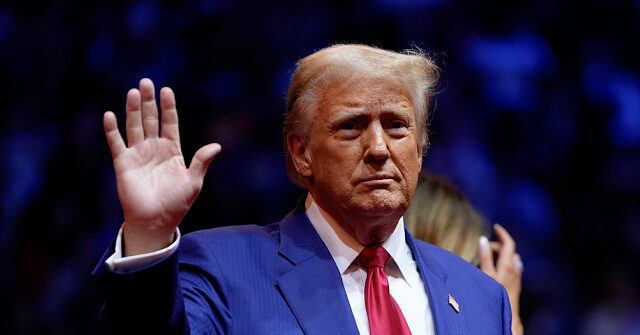During a recent appearance on “The Hill Sunday,” Republican National Committee Chair Michael Whatley expressed confidence in former President Donald Trump’s prospects for the upcoming election. Despite polls indicating that Trump trails by nearly a point in an average of high-quality surveys, Whatley maintained that Trump possesses a strong chance of winning. Host Chris Stirewalt pointedly asked if this implied that Trump may secure a majority of the national popular vote, given Whatley’s assertion that Trump would outperform expectations. Whatley responded positively, emphasizing the Trump campaign’s apparent momentum in key battleground states.
Whatley highlighted that, rather than focusing exclusively on national polling figures, the strategic emphasis should also be on leads Trump holds in crucial states such as Arizona, Nevada, North Carolina, and Georgia. He noted that in comparison to previous elections in 2016 and 2020, Trump and the Republican Party are faring significantly better in states like Michigan, Wisconsin, and Pennsylvania. This improved standing, especially in vital areas for electoral votes, adds to Whatley’s optimism, suggesting that local dynamics could play a pivotal role in the election outcome.
According to Whatley, Trump’s ability to connect directly with voters through “barnstorming” campaigns in these battleground states is of utmost importance. He asserted that Trump is engaging with the electorate about issues that matter most to them, which could translate into votes. This direct approach, as per Whatley’s assessment, is counterbalancing the negative polling figures and reinforcing the campaign’s belief that they can indeed secure victory on Election Day.
The RNC chair’s commentary underscores a broader Republican narrative that aims to dismiss unfavorable polling as unreliable or not reflective of the actual voter sentiment. By focusing on localized campaigning strategies and Trump’s engagement with communities, Whatley argues that the ground game and voter connection are potentially more influential than polling data suggest. This grassroots approach, according to him, is what will ultimately propel Trump to victory.
Looking ahead to the election, Whatley’s perspective captures both the excitement and uncertainty surrounding Trump’s candidacy. With key elections looming, he depicts a landscape where the traditional indicators may not tell the whole story. Republicans are banking on the idea that tangible interactions between Trump and voters can change the dynamics enough to sway the election results.
In conclusion, Whatley’s remarks reflect a mix of optimism and strategic redirection for the Trump campaign amidst challenging polling. His assertion that Trump is well-poised to win, augmented by leads in critical states, paints a picture of a campaign that is fully engaged and ready to capitalize on its strengths. As Trump continues to rally support in battleground areas, the Republican Party is clearly banking on both voter enthusiasm and a solid ground game to defy expectations on Election Day.

